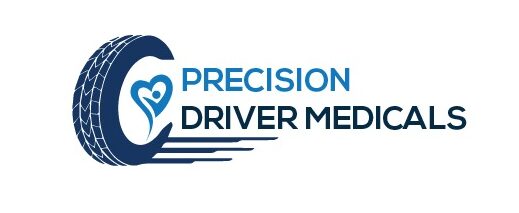Find out the UK’s hearing requirements for drivers and how Precision Driver Medicals can help you stay compliant on the road. Contact us today for professional guidance and prompt service, and learn about the significance of hearing and the standards that apply to private and experienced drivers.
Driving is a challenging endeavour that needs the full use of all sensory talents, including hearing. Hearing is essential for guaranteeing road safety because it allows drivers to recognise and respond to auditory cues such as sirens, horns, and other ambient sounds. Drivers in the United Kingdom must meet specific hearing standards, particularly those wanting to earn or renew professional driving licences. Precision Driver Medicals understands the importance of completing these regulations. Thus, we provide complete medical examinations to assist drivers in remaining compliant.
The Importance of Hearing for Drivers
Hearing is essential for:
- Recognising Warning Signals: Detecting emergency vehicle sirens, horns, and alarms.
- Communicating: Understanding instructions and warnings from passengers or other road users.
- Environmental Awareness: Being aware of sounds that indicate the presence of pedestrians, cyclists, or other vehicles.
Hearing Requirements for UK Drivers
Private Drivers
The UK’s Driver and Vehicle Licensing Agency (DVLA) has less stringent hearing requirements for private car drivers (Group 1) than for professional drivers. No specific hearing standards are set for Group 1 drivers, but any hearing impairments that affect safe driving must be declared to the DVLA. This can be done by filling out a specific form, known as the ‘Declaration of Impairment Form ‘, which can be found on the DVLA website, or by informing the DVLA during the license application or renewal process.
Professional Drivers
The DVLA enforces stricter hearing standards for professional drivers (Group 2), including those driving lorries (HGVs) and buses (PCVs). These drivers must undergo a medical examination to meet the required hearing standards.
Group 2 Hearing Standards
- Pure Tone Audiometry: This test measures the ability to hear sounds at various pitches and volumes. Professional drivers must have an average hearing threshold of no more than 40 decibels (dB) in the better ear.
- Hearing Aids: If hearing aids are used to meet the required standard, they must be worn while driving.
- Hearing Exemptions: In some cases, exemptions may be granted, but these are subject to strict conditions and periodic reviews.

Hearing Tests at Precision Driver Medicals
At Precision Driver Medicals, we offer thorough hearing tests as part of our medical assessments for professional drivers. Our services include:
- Pure Tone Audiometry: Conducted by trained professionals to accurately measure hearing ability.
- Medical History Review: Assessing any past or present medical conditions that may affect hearing.
- Consultation: Providing advice and support on managing hearing impairments and ensuring compliance with DVLA standards.
Benefits of Booking Your Hearing Test with Us
Expertise and Experience
Regarding your health and meeting the hearing requirements, you can trust our team of GMC-registered doctors. With their extensive experience conducting driver medicals, you can confidently receive the highest care and advice.
Convenience and Efficiency
- Online Booking: Easily schedule your appointment through our user-friendly online booking system.
- Flexible Appointments: We offer a range of appointment times to suit your schedule.
- Quick Turnaround: Receive your medical report promptly, helping you stay on the road without unnecessary delays. Book an appointment now!
Comprehensive Service
In addition to hearing tests, we offer a full range of medical assessments required for professional driving licenses, including vision tests, cardiovascular assessments, and more.
Tips for Maintaining Good Hearing Health
Maintaining good hearing health is essential for safe driving. Here are some tips to protect and improve your hearing:
- Avoid Loud Noises: Limit exposure to loud noises and use ear protection when necessary.
- Regular Check-Ups: Have your hearing tested regularly, especially if you notice any changes.
- Healthy Lifestyle: Maintaining a healthy lifestyle, including a balanced diet and regular exercise, supports overall ear health.
- Manage Medical Conditions: Properly manage any medical conditions, such as diabetes or hypertension, that can affect hearing.

FAQs About Hearing Requirements for Drivers
Do I need a hearing test for my HGV/PCV license?
If you are applying for or renewing a Group 2 (HGV/PCV) license, you must undergo a hearing test as part of your medical examination.
Can I drive with a hearing aid?
Yes, you can drive with a hearing aid. It must be worn while driving if necessary to meet the hearing standard.
What happens if I don’t meet the hearing requirements?
If you do not meet the hearing requirements, you may be referred for further assessment, or in some cases, an exemption may be considered. It is essential to discuss your situation with a medical professional.
How often should I have my hearing tested?
It is advisable to have your hearing tested regularly, especially if you notice any changes in your hearing ability. For professional drivers, hearing tests are typically required during medical examinations for license renewal.
Can I still drive if I have a hearing impairment?
Yes, many individuals with hearing impairments drive safely. It is essential to meet the DVLA’s hearing requirements and take necessary precautions, such as using hearing aids.
In summary
Ensuring you meet the hearing standards for drivers is not just about road safety and DVLA compliance; it’s about your peace of mind. Precision Driver Medicals offers comprehensive medical examinations, including hearing tests, to help you stay confident and secure on the road. Please schedule an appointment with us now and take the first step towards maintaining your professional driver’s licence.


